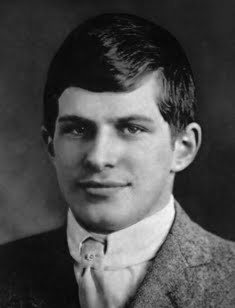The Second Law of Thermodynamics states that the universe tends toward high entropy. If so, what happens when there is nothing left to be disordered? How can matter be constant?
Asked by: Lisa
Answer
Let's start with the second question. Physicists would prefer to say that energy is conserved, not matter. In relativity theory we can convert one to another but energy is always conserved. That statement is not in conflict with the Second Law of Thermodynamics which states that in a closed system any process can either keep the entropy constant or increase the entropy of the system. The key is the form of the energy. In the universe today there are processes all around us that are converting one type of energy or another into heat energy. So the question is, what happens when all the usable energy is converted into heat?
That's a famous question that people thought a lot about in the nineteenth century. It goes under the name of the 'Heat Death of the Universe.' In short, once all of the energy in the universe is converted to heat then the universe will be in equilibrium - everything will be of the same temperature and entropy will remain constant forever. This is complicated a bit by the fact that the universe is expanding. In an expanding universe you can never really reach equilibrium - but the scientists of the 1800s didn't know about the expanding universe so let's just assume that the universe is static.
In such a universe we have a 'heat bath' of photons. These are the cosmic microwave background photons at a 'temperature' of 2.78 Kelvin. That's a pretty cold heat bath, and obviously you and I and the sun are much hotter. So we're not in equilibrium with the heat bath of the universe. But over time, as the sun burns hydrogen and as planets collide and break apart and as particles decay and so on, everything eventually ends up as photons or other elementary particles which eventually come to equilibrium. This is the conversion to 'heat.' The reason that we no longer worry about the heat death of the universe is that the time it would take for everything around us to convert to heat is many, many times longer than the current age of the universe. Our universe is marching very, very slowly towards equilibrium!
Answered by: Brent Nelson, M.A. Physics, Ph.D. Student, UC Berkeley
The second law of thermodynamics says that the total entropy of the universe can never decrease. Like other laws of thermodynamics this law is based on a statistical foundation and can be illustrated quite clearly by imagining that we can see the oxygen particles in a room.
Say that initially all of the oxygen molecules were grouped together in a nice regular pattern in one corner of the room. As time passes we can see that the molecules will begin to spread out. In a space as large as a room there is an almost infinite number of ways that the oxygen can arrange itself but only a very few of those correspond to states as organized as the one we began with. It is also reasonably easy to see why the state in which the molecules are randomly distributed around the room is the most probable. These two simple facts allow us to deduce that over time the molecules will spread out until they are randomly distributed. It is by calculating the number of possible states that the entropy is theoretically determined.
It is this pattern that makes physicists start to question the direction of time. In our room it is quite possible that for small periods of time the oxygen will begin to become more ordered but overall it will tend towards disorder. All of the laws of physics involved in the motion of the oxygen (Newton's mechanics and classical electromagnetism) are time reversible and so it should be equally possible for a randomly distributed set of molecules to accumulate in an order pattern like we began with. But it doesn't happen. This is because whichever way you point time it is more than likely that the particles will continue to spread out.
what are std benefits How to build your immune system? what is the difference between broker and agent what are the benefits of drinking almond milk Tips tricks how to hit a vein? What does joey chestnut win? How to remove links from a watch? what is the difference between manipulation and persuasion how to declare a helper method in java When tips cover off hairbrush bristles will it pull hair? Tips n tricks on how to get more people to home party? How to grow roses from cuttings? What do pd mean? how to master multiple skills a values statement benefits a company in which of the following ways Who you are jessie j lyrics meaning? What does microaggression meaning? How to delete emails in gmail? How much are tips on myfreecams? What does hvac stand for? who definition of health 2016 Infamous demo playstation 3 tips and tricks how to glide? what is the difference between a pharmacist and a pharmacologist how to solicit questions for your advice column What is dual enrollment? How to lose 5 percent body fat in 2 weeks? how to turn off ip helper windows 8 What does a black ribbon mean? how to improve an emergency department How to tell when eggs are bad? What is the meaning of a dandelion tattoo? How to program roku remote? what are dependent care benefits on w2 How to unzip files? How to factory reset? What does apt suite mean? what advice does george give to lenny about curley How to check subscriptions on iphone? what is difference between ibuprofen and tylenol what is a helper for classes called How to test a car battery? Tricks on how not to cum? when a helper has limited cultural experience What does pleading no contest mean?








